Key points from the Article 50 letter
- Published
What can be read into Theresa May's letter to European Council President Donald Tusk giving formal notice of Brexit?
BBC political correspondent Alex Forsyth examines it for clues on how events may unfold over the next two years.
Timing of talks
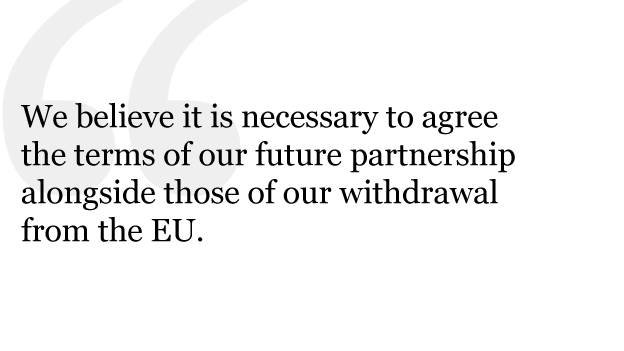
What's the significance? This is all about the timing of the talks and is likely to be a key point of contention. The EU Commission's chief negotiator Michel Barnier has made his view clear - the UK and the EU should agree the terms of the UK's withdrawal before negotiating any future trade deal. He's said "putting things in the right order" maximises the chances of reaching an agreement.
However the UK Government takes a different view - one Theresa May chooses to reiterate several times in this letter.
She says the divorce and the new relationship should be discussed at the same time, in fact saying the government thinks it's "necessary" to agree the withdrawal alongside the future relationship. This is shaping up to be the basis of an early row if both sides stick to their positions. How it's resolved could be interesting in setting the tone for the rest of the negotiations.
What if we don't reach a deal?
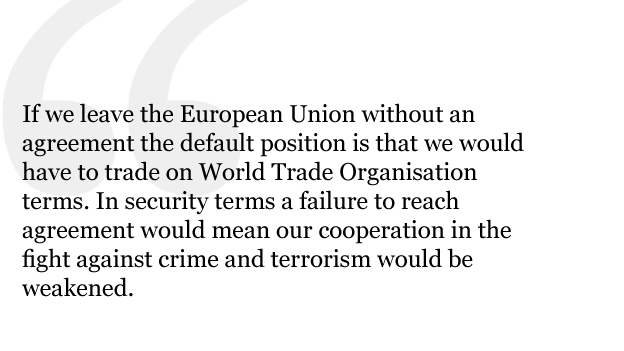
What's the significance? When Theresa May gave her first in-depth insights into her vision for Brexit in a speech at Lancaster House earlier this year, she said "no deal for Britain was better than a bad deal". That led to much talk about what "no deal" would mean - for both the EU and the UK.
In today's letter, the prime minister didn't explicitly repeat what she said previously. Instead, Mrs May reiterated that the UK wants to agree a "deep and special partnership with the EU", and failure to do so would weaken cooperation in the fight against crime and terrorism.
Rather than threatening to walk away, the prime minister is attempting to highlight the mutual benefits to both the UK and the EU of reaching an agreement about their future relationship - and warning of the dangers if that doesn't happen. It's a carrot rather than a stick, albeit one that comes with a health warning.
Tone
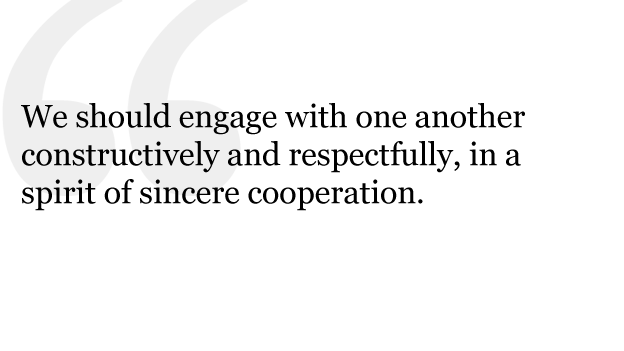
What's the significance? At the start of a negotiation, tone is key.
Theresa May is about to enter one of the most significant negotiations of any prime minister . In this letter, she deliberately avoids an aggressive stance.
She sets out how the UK is the EU's closest friend and neighbour and why a continuing relationship between the two is essential to both. Rather than make threats or set out red lines, Mrs May strikes a positive and cooperative tone - more so than in the speech she gave about Brexit at the start of the year.
Given the time pressure and sheer complexity of this negotiation, and just what's at stake for all involved, the prime minister seems to be saying to her EU counterparts: let's work on this together. It might be welcomed by the EU, but some hard-line Brexiteers may want to ensure there's still a tough approach to the talks behind the more friendly tone.
Citizens' rights
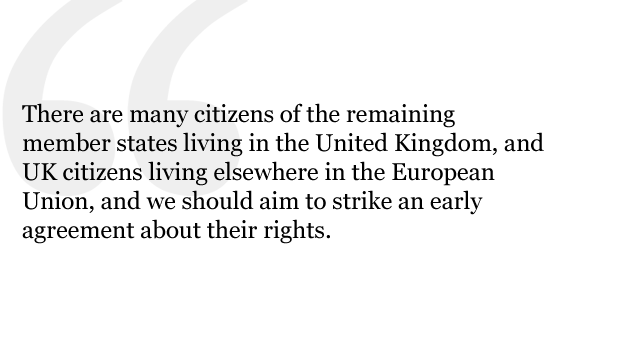
What's the significance? Many EU citizens living in the UK, as well as Britons living abroad, have expressed concern about the impact Brexit may have on their rights. Theresa May came under pressure to unilaterally agree to protect those EU citizens living in the UK, but has repeatedly refused to do so, saying only it is important to get resolved early. The European Union has refused to discuss it before A50 was triggered - now that's happened Mrs May makes clear an early agreement on this issue is still a priority.
On this point the EU will agree - they too want this settled soon. But in today's letter, Mrs May acknowledges it is a complex area.
Both sides may want it resolved, but the specifics are likely to be an early - and possibly tricky - discussion.
Transitional arrangement
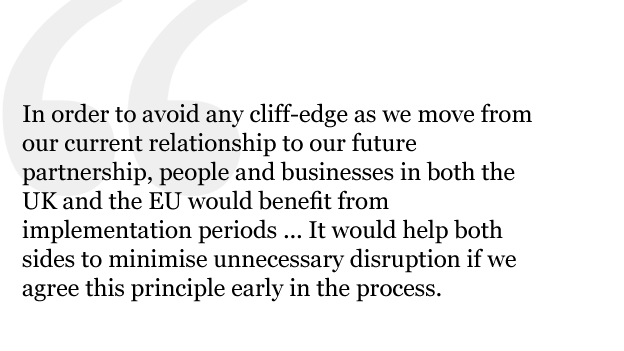
What's the significance? Two years isn't a long time to rework a relationship that's lasted for more than four decades .
There are swathes of regulation and legislation to unpick, discussions on a whole host of issues from immigration, trade, workers' rights and environmental regulation. The outcome will have an impact on businesses, investors and individuals.
The prime minister again says she wants to avoid a "cliff edge" - a dramatic period of rapid change when the old rules cease to apply and the new ones start.
Instead she suggests a "phased implementation" where the new way of working, once agreed, can be brought in gradually to 'minimise disruption'.
Theresa May has talked of this before, but in the letter asks the EU to agree to this principle early on in talks. If it does, this effectively means the UK won't necessarily sever all ties with the EU when the negotiating period is up in two years' time. Instead there'll be a transition.
Trade and money
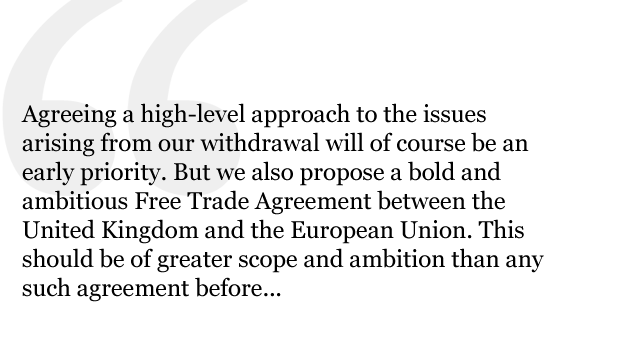
What's the significance? The UK has been clear for some time that it wants to replace single market membership with a good trade deal.
The letter doesn't offer a great deal more in the way of specifics; it doesn't even mention the customs union.
But it does say technical talks about an "ambitious deal" should start as soon as possible. There's no direct mention of the much-mooted "divorce bill" - billions of pounds some EU leaders have suggested the UK will have to pay on leaving in order to meet existing financial commitments.
The PM says there must be talk about a "fair settlement" of the UK's obligations as a departing member, although she makes clear that must be discussed at the same time as the UK's future partnership with the EU. The timetable is clearly key to the government - which wants to ensure it can start negotiating a trade deal soon.
And - what is not in the letter?
Immigration was a key issue during the referendum campaign, and the PM made controlling migration from Europe to Britain one of her 12 Brexit priorities earlier this year.
However, there's no specific mention of immigration in today's letter. It refers to the "four freedoms of the single market" - one of those is freedom of movement.
It acknowledges the UK can't "cherry pick" between these; a reference to the warning from EU leaders in the past that if the UK wanted to remain a member of the single market it would have to accept the free movement of people.
Mrs May has already ruled this out in speeches in the past.
Leaving it out of the letter could be her way of saying it's not up for negotiation, or it could be a recognition that on free movement the EU's line is just as firm - so there's not much to talk about.
Either way, such a significant issue is conspicuous by its absence.
- Published29 March 2017
